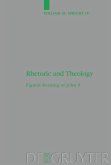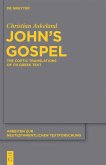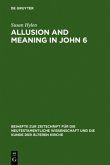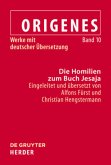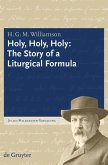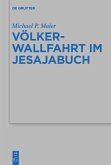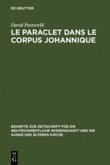The influence of Isaiah on John's narrative and theology has long been recognized, but it has yet to receive monograph-length attention. This study is a beginning attempt to fill that void through an examination of the use of Isaiah in the crucial hinge of John's gospel - John 12:1-43. Beginning with a reading of Isaiah 40-55 illustrating a way in which early Christians may have read this important section of Scripture, the bulk of the study examines the pericopes in John 12:1-43, seeking to identify and interpret John's use of Isaiah 52-53. It is concluded that a reading of this well-known Isaianic text rooted within its broader context in Isaiah, together with the mediating influence of other texts - notably Isa 6:9-10 and Zech 9:9-10 - has fueled much Johannine theology, Christology, and ecclesiology. Moreover, mirroring the progression of Isa 52:7-53:1 in John 12 is the author's way of underlining Jesus' identity as the Servant of God and announcing that the second exodusprophesied by Isaiah is secured by the rejection (and death) of Jesus.
"As a worthy starting point for all future research on Isaianic influence in the Fourth Gospel, this volume is highly recommended for research libraries as well as scholars working within biblical intertextuality or Fourth Gospel research."
Douglas Estes in: Religious Studies Review, Volume 43, No. 2, June 2017, p. 174
Douglas Estes in: Religious Studies Review, Volume 43, No. 2, June 2017, p. 174


